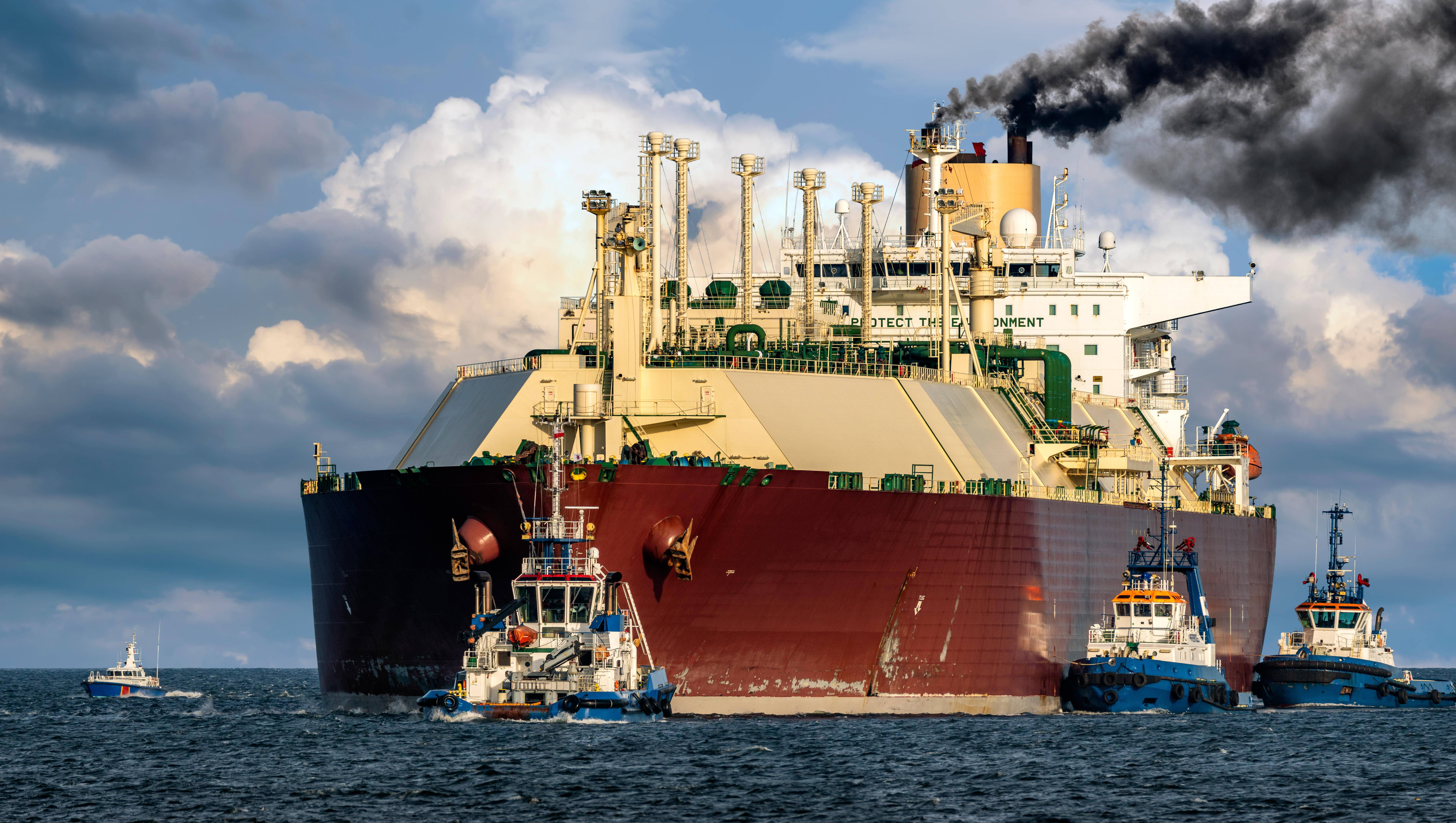Response to ZEMBA’s Announcement: Biomethane a Slippery Slope to Decarbonize Shipping
Over two years, Hapag-Lloyd will use waste-based biomethane in existing fossil-LNG vessels. There is a significant risk this contract could make the case for building new LNG infrastructure.

The Say No to LNG Global Shipping Campaign acknowledges the Zero Emission Maritime Buyers Alliance (ZEMBA) – a nonprofit membership group co-founded by Amazon, Patagonia, Tchibo, and the Aspen Institute – in their efforts to accelerate the commercial deployment of zero-emissions shipping services.
ZEMBA’s announcement of their inaugural tender showed that cargo owners are willing to pay a premium for fuels that lower greenhouse gas (GHG) emissions. However, ZEMBA did not receive bids without biogenic inputs (e.g., producing biomethane from feedstocks such as manure) that could achieve their 90% emissions reduction target.
Hapag-Lloyd – an international shipping company – was selected as the winner of ZEMBA’s tender: over two years, they will use waste-based biomethane in existing fossil-LNG (Liquefied Natural Gas) vessels.
Whether a ship is using fossil LNG or biomethane, methane slip on board remains the same.
Source: Methane emissions along biomethane supply chains are underestimated
Under a more efficient and sustainable context of feedstock availability, biomethane could offer some GHG reductions compared to traditional fuels. But even waste-based biomethane production will not fully eliminate methane emissions from its supply chain and methane slip in combustion. The recent Fugitive and Unburned Methane Emissions from Ships (FUMES) study, published by the International Council on Clean Transportation, shows that methane slip can be higher than regulators assume.
Methane is a strong GHG with a 12-year atmospheric lifetime, on average, compared to centuries for CO₂. Even though methane does not stick around for long, it is a potent GHG, with a global warming potential 82.5 times greater than CO₂ in the first 20 years after it is emitted. Methane emissions not only exacerbate global warming in the short term but also worsen air quality.
Biogas resources are limited.
Biomethane produced sustainably is available in limited quantities, and shipping is not the best way to use that resource. Liquefaction usually results in an 8% energy penalty to transform gaseous biomethane into liquid biomethane by chilling down to -162ºC. As such, some biomethane could be “wasted” when used on a vessel.
ZEMBA “views biomethane, even exclusively waste-based biomethane, as having scalability challenges in the long run.” As a result, ZEMBA revised Hapag-Lloyd’s contract period from 3 to 2 years with the assumption that policy developments and the maturation of markets for e-fuels will present stronger bids for their 2027 procurement round. Last week, Hapag-Lloyd’s Senior Director of Fuel Purchasing said “bunkering large quantities of liquefied bio-methane is possible and scalable”, which raises concerns on how this contract intends to be utilized.
There is a significant risk this contract could make the case for building new LNG infrastructure.
Creating a market over the next 2 years for biomethane production is a slippery slope. ZEMBA’s 90% emissions reduction target may align with the Paris Agreement, but this stopgap decision may further delay investments in long-term, zero-emissions solutions. Any shipping infrastructure investments must be directed towards solutions that go hand in hand with a just and equitable transition and robust life-cycle approach, and go beyond just fuel/e-fuel solutions.
Under this contract, ZEMBA is supporting the use of existing Hapag-Lloyd fossil-LNG ships and fossil-LNG infrastructure at the ports of Singapore and Rotterdam. Even with the assurance that no new LNG infrastructure will be built, this reliance on existing LNG infrastructure risks locking the industry into a fossil fuel-based system, even with biomethane.
Lastly, biomethane production can exacerbate unsustainable land-use practices, such as the impacts of industrial livestock farming. Learn more about this in our Biomethane Factsheet.
A commitment to a truly zero-emission shipping future requires all hands on deck.
In the spirit of collaboration, the Say No to LNG campaign urges ZEMBA to:
- Set and uphold stricter eligibility requirements for future tenders. Limiting participation in tenders can directly incentivize investment in operational and technical energy efficiency measures, e-fuel development, and a reduction in vessel size, speed, and trade.
- Implement broad transparency. This requires the wide dissemination of information, including the measurement and disclosure of the amount of methane slip from ship engines and the use of 20-year GWP alongside 100 GWP to determine the climate impacts of marine fuels. This will ensure transparency, credibility, and accessibility of information for all stakeholders.
- Ensure multi-stakeholder engagement. Targets set in haste under corporate or other pressure without proper impact assessment should be critically reviewed. Engagement, particularly with knowledge holders in food and waste management systems, is crucial in the biomethane discussion to avoid exacerbating land-based and systemic issues.
- Support policies that regulate methane and other GHGs. Call on all Member States at the International Maritime Organization (IMO) to support adopting a strong GHG fuel standard and bold Life Cycle Assessment (LCA) guidelines. This is essential for de-risking investments in scalable zero-emission, sustainable fuel production and creating clear demand signals.
We look forward to ZEMBA prioritizing long-term solutions within a just and equitable framework as we collectively move toward a zero-emission, sustainable shipping supply chain.
***
Say No To LNG is a global campaign mobilizing stakeholders towards a fossil fuel-free shipping industry. The campaign supports solutions for shipping decarbonization that take a lifecycle approach, go beyond fuel solutions – including operational and efficiency measures, meet international climate commitments, and align with a just and equitable transition.
For more information, visit www.saynotolng.org.
For media inquiries please contact Rachel Wang at [email protected].